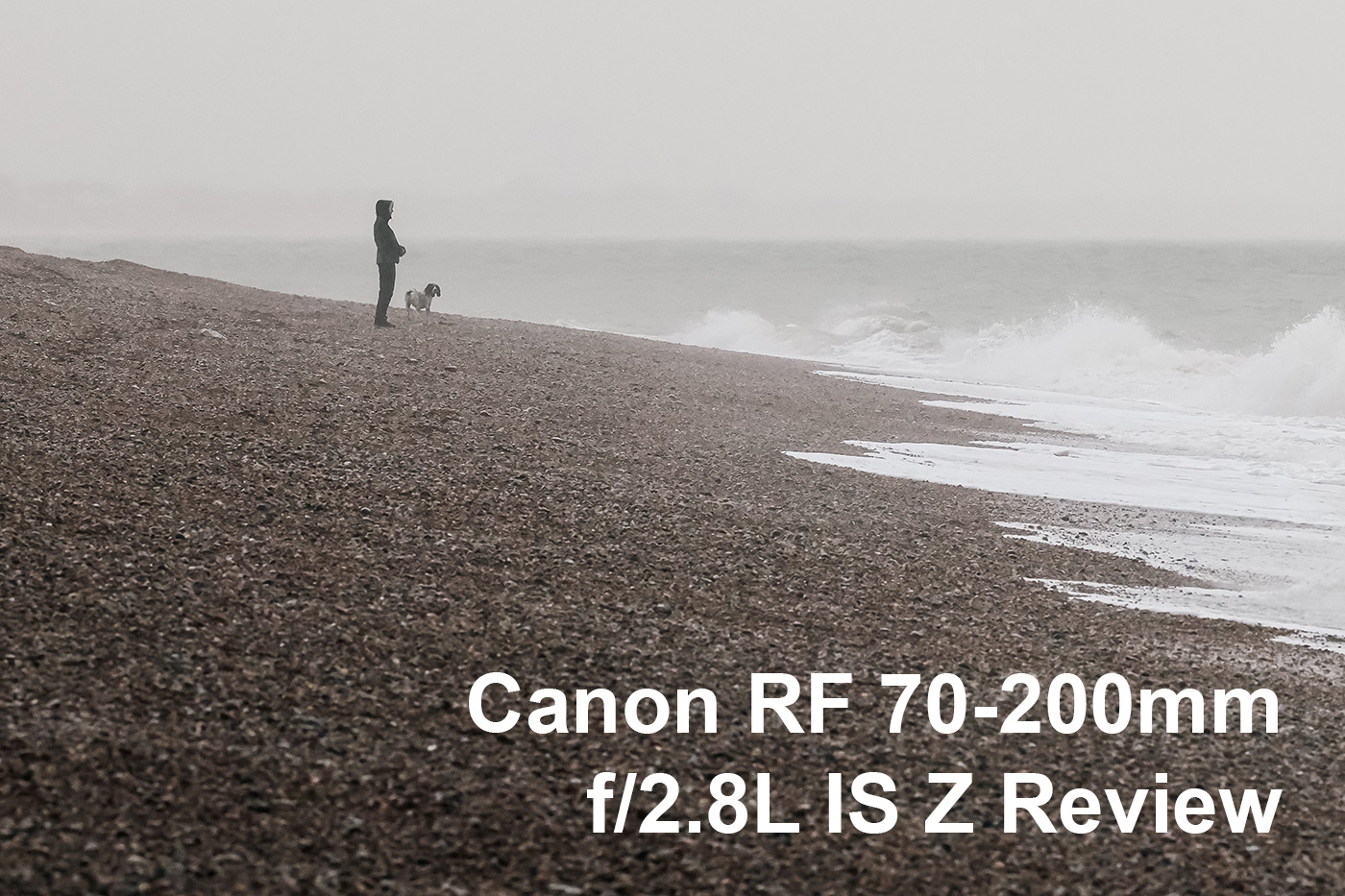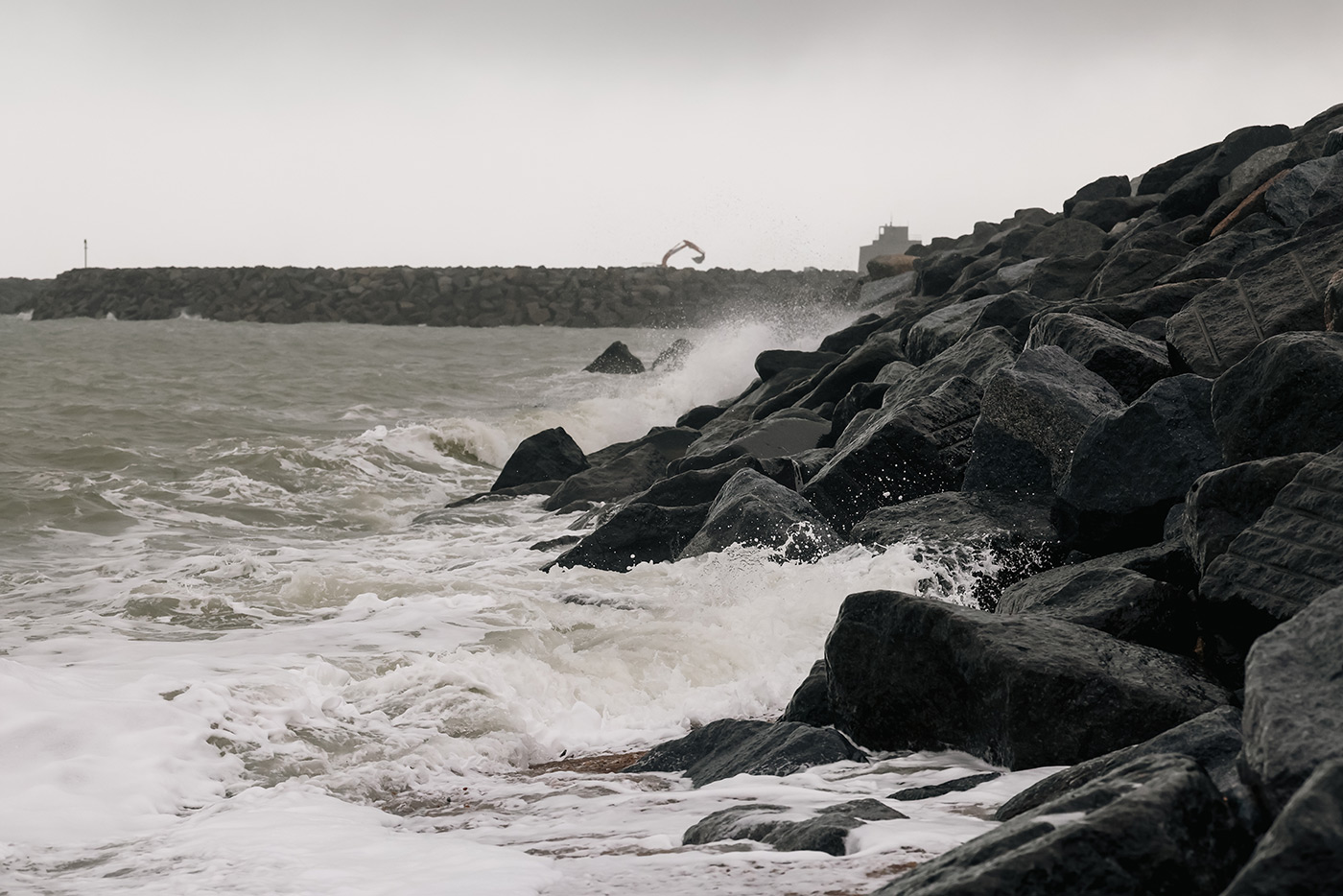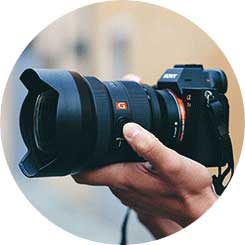- Call us: 01444 237070
- Contact Us
- Stores
- Sign In / Register
-
- Back
- Used Cameras
- Used Accessories
- Used Lenses
- Used Video
- Used Film Equipment
- Used Stock Alert
- Used Blank Test
- Sell or Part Exchange
- Used Clearance
- Recently Added Used Equipment
- Park Picks
- All Used Black Friday Deals
- Faulty
- Trade-In
- Blog
- New in
- Call us
- Contact us
- Stores
- Sign in
- Categories
- Tips & Inspiration
- Reviews
- News
- Events
- Features
- Buying Guides
- Competitions
Canon RF 70-200mm f/2.8L IS Z Review
The RF 70-200mm f/2.8L IS Z is Canon’s latest addition to its lineup of professional-level telephoto zoom lenses for RF mount mirrorless cameras. It offers a robust set of features for hybrid creators and is designed to meet the needs of advanced photographers and videographers.
Discover whether its perfect for your content creation in our Canon RF 70-200mm f/2.8L IS Z review, which includes a hands-on video from Gareth Evans, as well as specs comparison with two existing RF 70-200mm options.
This high-quality telephoto zoom promises excellent image quality, fast autofocus, and improved handling for various shooting environments. Whether you capture portraits, action, wildlife, or events, this is a versatile RF lens, that delivers both reliability and performance. Let’s dive right in and find out more.

Canon RF 70-200mm f/2.8L IS Z Price and availability
Priced at £3,449.00, the Canon RF 70-200mm f/2.8L IS Z is available in both black and white versions depending on your primary shooting requirements. This places it at a premium price point, which reflects its status as a high-end professional zoom from Canon’s premium L-series (Luxury) range.
This model competes directly with Canon’s other RF 70-200mm lenses, including the RF 70-200mm f/2.8L IS USM, which is priced slightly lower at £2,999.00. What really sets the newest RF Z version apart is its internal zoom mechanism, which enables the lens to remain a constant size when zooming in and out. There are some other difference too, which we later on in our review below.
Canon RF 70-200mm f/2.8 IS Z | Hands-on Review
Build Quality and Design
The RF 70-200mm f/2.8L IS Z lens arrives with Canon’s signature L-series build quality, offering rugged, weather-sealed construction for outdoor shoots and demanding conditions. The lens is sealed against dust and moisture, with a Fluorine coating to repel dirt and make cleaning and maintenance easier.
The white version of the lens includes a thermal paint barrier that we’ve seen on other Canon tele lenses, which helps to reflect heat when shooting in very bright and hot environments.
A key difference is the internal zoom mechanism, which basically means that the lens barrel does not extend when zooming. This is particularly beneficial for videographers who need a constant centre of balance when mounted on a rig or stabiliser, as well as for photographers who shoot with a monopod, where the centre of gravity is best unchanged. There are of course benefits to an extending lens design, and some photographers will be drawn to the compact nature they can achieve, which is far shorter when compacted down for transport.
Many users will also appreciate the short 70º zoom rotation of the newer model, which allows for quick and precise focal adjustments during fast-paced shooting.

Sample image 01 with R6 Mark II @200mm. Camera settings: 1/1600 sec. f/2.8. ISO 125
Optical Design and Image Quality
The Canon RF 70-200mm f/2.8L IS Z uses a sophisticated optical formula, which Canon has designed to deliver very high image quality throughout the zoom range. This includes a combination of Super UD, UD and aspherical elements, which minimise chromatic aberrations, distortion, and other optical imperfections.
As a result, users can expect high levels of sharpness, contrast and detail across the frame, even at the wider aperture of f/2.8. Additionally, an 11-blade aperture design renders smooth and rounded bokeh, and is ideal for creating subject separation in portraiture, or for isolating your subject against busy backgrounds.
This lens’ optical performance is designed to rival prime lenses in terms of sharpness, and it is an exceptional option for photographers and for video content.
Image Stabilisation and Low Light Performance
The RF 70-200mm f/2.8L IS Z offers 5.5-stops of built-in optical image stabilisation, which reduces camera shake when shooting handheld. When paired with a compatible EOS R camera such as the EOS R5 Mark II or R6 Mark II, stabilisation syncs with IBIS and increases up to 7.5-stops, which is incredibly useful in low-light and when slower shutter speeds are favourable.

Sample image 02 with R5 Mark II @200mm. Camera settings: 1/640 sec. f/5.6. ISO 400
Autofocus Capabilities
The autofocus system in the Canon RF 70-200mm f/2.8L IS Z employs Dual Nano USM motors, which deliver fast, accurate, and silent focusing. This cements it as an excellent choice for both stills and video creators, especially as smooth and silent operation is beneficial for video, where you need to avoid any focus motor noise being picked up by microphones.
Photographers who shoot events will also appreciate the quiet AF system, especially during wedding vows, concerts, sports and other events where silent shooting is beneficial.
Usability and customisation
Hybrid shooters (and some photographers) will benefit from the dedicated Iris Ring featured on this model, which allows for smooth manual aperture control, which is useful when making exposure adjustments while filming.
Other controls include a customisable control ring and function button, which enable a more streamlined shooting experience, whether you set up focus lock, ISO, or aperture control for example. The Dual Nano USM AF system also shines here, with fast, silent, and smooth focus transitions that are desirable for high-quality video productions.
Optical breathing compensation and Electronic Parfocal performance further contribute to this being an excellent option for videographers.
The design is also well suited to photographers who want a balanced, high-quality shooting experience with easy access to controls, from a design which doesn’t shift weight as you zoom in.

Sample image 03 with R5 Mark II @88mm. Camera settings: 1/1250 sec. f/5.6. ISO 200
RF 70-200mm f/2.8L IS Z Specs Comparison Vs Other RF 70-200mm Lenses
When comparing the RF 70-200mm f/2.8L IS Z to its stablemates, the RF 70-200mm f/4L IS USM and RF 70-200mm f/2.8L IS USM, several key differences stand out. The f/4L IS USM is more compact and lighter, making it a great option for photographers who prioritise portability, but it lacks the wide aperture and internal zoom mechanism of the Z version.
The f/2.8L IS USM on the other hand, shares the same aperture but doesn’t include an internal zoom design, which may be a disadvantage for videographers or photographers who need better balance and consistency during zooming.
Another key benefit of the newer model is Extender compatibility with Canon Extender RF 1.4x and Extender RF 2.0x. This is unique for Canon’s zooms at this range and provides a distinct advantage when you need to gain extra reach with 98-280mm and 140-400mm available.
The table below compares key specs between three Canon RF 70-200mm lenses
|
|
RF 70-200mm f/2.8L IS Z (new) |
||
|
Announced |
October 2024 |
November 2020 |
November 2019 |
|
Price |
£3639.00 |
£1769.99 |
£2999.99 |
|
Focus system |
Dual Nano USM motor |
Dual Nano USM motor |
Dual Nano USM motor |
|
Iris ring |
Yes |
|
No |
|
Optical stabilisation |
5.5-stops (increasing to 7.5-stops with IBIS) |
5-stop |
5-stop |
|
Diaphragm Blades |
11 |
9 |
9 |
|
Internal zoom |
Yes |
No |
No |
|
Dust/Moisture Resistance |
Yes |
Yes |
Yes |
|
Compatible with Extenders |
Yes |
No |
No |
|
Fluorine coating |
Yes |
Yes |
Yes |
|
White heat-blocking paint |
Yes (White version) |
No |
Yes |
|
Colour options |
White Black |
White |
White |
The RF 70-200mm f/2.8L IS Z stands out because of its internal zoom, Extender compatibility, aperture design, and the option to streamline it for both photography and video.
Who is the RF 70-200mm f/2.8L IS Z for?
This lens is aimed at advanced enthusiast and professional photographers who need a versatile hybrid telephoto zoom that performs across a variety of genres. From portraits and lifestyle shoots to sports and wildlife photography, the RF 70-200mm f/2.8L IS Z delivers consistently high-quality results.
The dedicated Iris Ring will draw some creators, and it is an all round fantastic option for filmmakers who need more precise control over exposure.
Other subjects which are particularly suited to this zoom include:
- Wildlife
- Photojournalism
- Portrait
- Indoor / Outdoor sports
- Travel
- Weddings
- Events

Sample image 04 with R5 Mark II @88mm. Camera settings: 1/1250 sec. f/8. ISO 2500
It’s well worth noting that the telephoto zoom was released alongside the RF 24mm f/1.4L VCM and RF 50mm f/1.4L VCM Lens, which are both squarely aimed at hybrid creators. You can read more about both of these in our Canon RF 24mm and RF 50mm f/1.4 Review here.
The 70-200mm Z lens is the pro-choice for this zoom range, especially for hybrid creators who captures both stills and video content for their clients. The internal zooming mechanism, enhanced stabilisation, and Dual Nano USM AF in particular make this a brilliant option for capturing a wide range of subjects, regardless of how demanding the lighting conditions are, or how fast the subject moves around the frame.
While it’s priced at the higher end of Canon’s RF zoom lineup, advanced features and superior handling make it a worthy investment for professionals who need reliability and high-quality results, together with premium build-quality.
With the option to choose between black and white versions, and the added benefit of a thermal paint barrier for shooting in hot conditions, the latest Canon RF 70-200mm lens offers something unique for pro-level creators who want flexibility in any working environment.
Reserve your Canon RF 70-200mm f/2.8L IS Z Lens White (with thermal paint) or Canon RF 70-200mm f/2.8L IS Z Lens Black today and experience the professional-level performance, which this zoom lens delivers.
If you’re selling unwanted camera gear why not snag a free trade-in quote and find out how much you can save off the price of the zoom, while enjoying our completely hassle-free process.
Share this post:
By Nick Dautlich on 30/10/2024
Nick Dautlich
Senior Content Writer and Product Reviewer
Nick Dautlich is the Senior Content Writer and Product Reviewer at Park Cameras, with over 15 years of photography experience. A Sony Imaging Professional and expert reviewer, Nick has worked with major brands such as Canon, Sony and Nikon. His work is also featured on Vanguard World UK’s website, Capture Landscapes, and Shutter Evolve. Nick’s photography includes National Trust projects and magazine covers and he is passionate about landscapes and storytelling. Nick also enjoys hiking and teaching his children about nature. Learn more on his profile page.

Trade in your old equipment
Fast and easy trade in service ensures your old gear is collected efficiently and you are paid quickly! It's very simple to trade in your unwanted photography gear. Just head over to our dedicated Sell or Part Exchange page, fill out the details, and we'll get back to you with an offer for your old gear. Take the cash, or put it towards the cost of your new gear. It's up to you! Find out more
sign up to the newsletter
Keep up to date on the latest photography news, events and offers. Sign up now